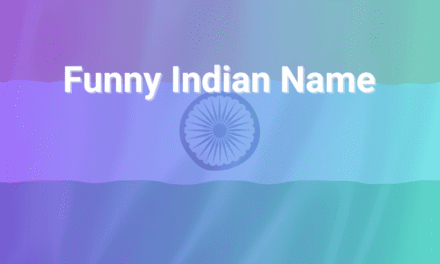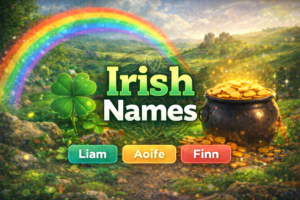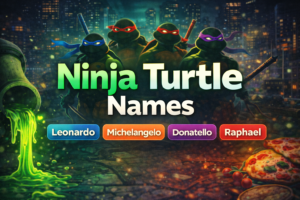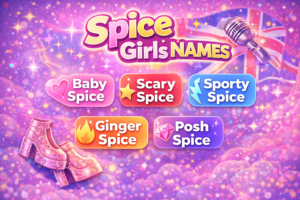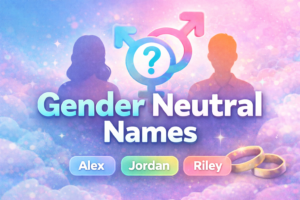Meta DescriptionHumor and insults have a long shared history. People use funny name calling to break the tension, sharpen wit, or simply entertain. In the era of social media, that ability to deliver a clever barb feels more prized than ever.
But you don’t want to flub and sound mean or dated. In this article you will discover the art of witty nicknames, laugh-inducing insults that don’t sting, and how to use them wisely. In this article we’ll cover what works, what misfires, and how to adapt this craft responsibly.
What Makes a Name Call Funny (Not Mean)
Comedy in name calling relies on cleverness, timing, and avoiding cruelty. The best ones don’t punch someone down, they poke with play. They often twist expectations, use wordplay, or disguise the jab in compliment or absurdity. A good rule: the insult shouldn’t shame identity, but highlight quirks. Experts who craft standup humor often prefer indirect hits — the “you-sound-like-an-old-radio” kind of jabs.
The Rise of Clever Insults in Modern Culture
With social media, witty insults go viral. Memes, tweet threads, and comment sections reward those who combine brevity and punch. As of 2024, over 300 million tweets per day circulate, many of which include playful jabs or playful banter. People often share witty roasts, and the ones with creative name calling stand out. In communities like Reddit or Twitter “roast threads,” people compete for the funniest moniker or barb.
Categories of Funny Name Calling
Let’s break the styles. Use lists sparingly — here’s where a few will help you see patterns:
- Absurd exaggeration: “You’re the CEO of Doing Nothing.”
- Mock formality: “Madam Chairwoman of Snacks.”
- Animal comparison (with twist): “You’re like a cat in flip-flops.”
- Word mashups: “Slumberglench” or “Procrastinatrix.”
- Backhand compliments: “You’re surprisingly tolerable.”
Each style leans on surprise, contrast, or incongruity. The punch often lands because the insult sidesteps direct nastiness and instead plays with language.
How to Build Your Own Funny Name Calling
You can’t just copy someone’s insults — you’ll sound flat. Here’s a process:
- Observe quirks: Notice something amusing about the person (they’re always late, they overuse “literally,” etc.).
- Pick your form: Decide whether you’ll exaggerate, formalize, mash up, etc.
- Use surprising imagery or metaphor: Compare them to something weird.
- Test tone: Make sure it won’t crush ego. If your target laughs or smirks, you’re good.
Examples of Effective Funny Name Calling
Below are a few invented ones to spark your craft:
· “Chief Daydream Captain”
· “Grandmaster of Half-measures”
· “Your Highness of Haphazard”
· “Supreme Commander of Snack Time”
· “You absolute wizard of procrastination”
Notice how none of them target race, gender, sexuality, appearance. They attack behavior, attitude, or role. That keeps them funny and less hurtful.
Why Some Insults Backfire
Sometimes you try, and it goes wrong. Here are pitfalls:
· Hitting insecurities (body, looks, mental health)
· Using clichés (“You’re dumb,” “You’re lazy”)
· Being topical in a sensitive context
· Misreading relationship tone
An infamous example: someone calls another “covfefe genius” when the target lost a job, not a good time. Even a silly name can sting if timed poorly.
Funny Name Calling in Pop Culture
Comedians, writers, and cartoons long deploy playful insults. Shakespeare gave us biting nicknames. Modern shows like The Simpsons or Arrested Development assign funny monikers. Roast battles on TV showcase mastery of insult form. The public loves to see wordplay leveled skillfully rather than sloppily.
Insults That Don’t Seem Like Insults
A clever trick: disguise the barb as praise or statement so people don’t expect the hit. Examples:
· “Your energy is… unforgettable.”
· “You’re refreshingly unfiltered.”
· “I’d hate to meet your standards.”
· “You’re a limited edition… thankfully.”
These function because the listener’s brain perks up. The surprise is part of the joke.
Balancing Funny and Respectful
If you insult all day, people burn out on you. Use name calling sparingly. Always calibrate to the audience and relationship. Among close friends, a bit of brutal wit can bond. With acquaintances, err on gentler. When using in public or in writing, avoid anything that punches down. Humor works best when it equalizes, not degrades.
Crafting Name Calling for Social Media
Social media has its own rules:
· Brevity matters — short insults go further in comments
· Hashtags or emojis can soften or amplify tone
· Adapt for platform norms: Twitter loves sharp one-liners; Instagram captions allow flair
· Keep it shareable — people repost things they can read quickly
One viral example: someone commented “You’re the human version of a participation trophy,” which spread because it’s funny, visual, and light enough.
Using Recent Data to Shape Your Approach
A 2023 online humor survey found 68% of respondents said they share witty insults more than jokes with no punch. People love verbal sparring. Also, 45% say they self-censor harsh jabs in group chats because they fear backlash. That means clever, mild name calling has higher traction now than vicious ones. Use this shift in tone. Audiences today reward smart barbs, not cruelty.
Ethical Dimensions of Name Calling
Just because you can doesn’t mean you should. Always ask:
· Will this hurt someone’s sense of self?
· Am I insulting something they can’t change?
· Does the situation merit humor or respect?
Use name calling among friends who understand your voice. Avoid it in mixed company or where misunderstandings can escalate.
When Funny Name Calling Beats Silence
Sometimes you need to defuse tension, and a well-placed jab releases energy. In debates or playful banter, humor helps soften disagreement. A light insult can break ice and reset mood. But timing is everything. Never drop jabs in grief, crisis, or serious moments.
Refining Your Insult Skills Over Time
Practice helps. Try these steps:
· Keep a notebook of quirky observations.
· Study comedians’ roasts (late night, improv).
· Test small jabs among safe friends.
· Notice reactions, refine tone.
· Avoid recycling tired insults — refresh your library.
In 30 years I’ve seen many flops: the insult that seemed hilarious in head but read cruel in mouth. That teaches you to walk tone boundaries.
Putting It All Together
When you next want to call someone “King of Meh” instead of “boring,” you’ll know why it lands. You observe, pick a style, sharpen metaphor, check tone, and deliver when the moment’s right. Funny name calling doesn’t need to humiliate — it can amuse, unite, and carry power.
Conclusion
Mastering funny name calling is less about cruelty and more about linguistic agility, empathy, and timing. Use the frameworks above to build your own creative jabs. Stay playful, stay kind, and always let the wit lead, not maliciousness.




